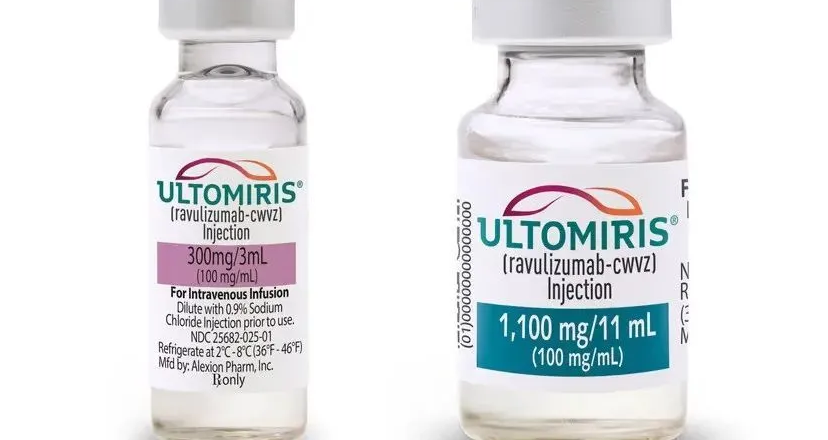On April 28, AstraZeneca released news that its subsidiary Alexion’s new drug Ultomiris (Ravulizumab) was approved by the FDA for the treatment of anti-acetylcholine receptor (AChR) antibody-positive generalized myasthenia gravis (gMG) adult patients, which account for 80% of the total number of patients with the disease. This is the first and only FDA-approved long-acting complement C5 inhibitor for the treatment of gMG.
About generalized myasthenia gravis
Generalized myasthenia gravis is a rare autoimmune disease characterized by severe muscle weakness. In gMG, inflammation results in damage to the junctions between nerve cells and the muscles they control (called the neuromuscular junction, or NMJ). This damage results in disruption of communication between the brain and muscles, loss of muscle function, and severe weakness. About 80% of gMG patients produce specific antibodies that bind to the cell surface at the NMJ. This binding activates the complement cascade, causing the immune system to attack the NMJ, producing inflammation and disruption of communication between the brain and muscle.
As a result, patients with gMG experience initial symptoms, such as slurred speech, drooping eyelids, diplopia, and lack of balance that can often progress to more severe symptoms such as choking, dysphagia, extreme fatigue, and even respiratory failure. gMG can occur at any age but is most common in women before age 40 and men after age 60. The prevalence of gMG is estimated at 107 to 278 per million people.
Ultomiris is the first approved and only long-acting complement C5 inhibitor, which improves the clinical symptoms of patients with generalized myasthenia gravis by inhibiting the C5 protein in the terminal complement cascade in the human immune system. The FDA approval was based on positive results from a CHAMPION-MG Phase III trial, in which Ultomiris was superior to placebo in the primary endpoint of change from baseline in activities of daily living in patients with myasthenia gravis.

About Ultomiris
Ultomiris is the first and only long-acting complement C5 inhibitor that provides immediate, complete and sustained complement inhibition. The drug works by inhibiting the C5 protein in the terminal complement cascade. When activated in an uncontrolled manner, the complement cascade overreacts, causing the body to attack its own healthy cells. Ultomiris acts as complement inhibition, and adult patients only need to inject Ultomiris intravenously every eight weeks.
Ultomiris was first approved by the FDA in December 2018 for the treatment of paroxysmal nocturnal hemoglobinuria (PNH) in adults and children (one month and older) and was also approved in the European Union (EU) and Japan for the treatment of adults with PNH. It was also approved in the United States and Japan for treating atypical hemolytic uremic syndrome (aHUS) to inhibit complement-mediated thrombotic microangiopathy (TMA) in adults and children (one month and older), while in the European Union, it was approved for aHUS treatment in adult and children patients weighing at least 10 kg. As part of an extensive development program, Ultomiris is being evaluated for the treatment of other hematological and neurological indications.
Ultomiris came from AstraZeneca through its acquisition of Alexion. On December 12, 2020, AstraZeneca announced the acquisition of Alexion for US$39.4 billion (approximately RMB 257.883 billion), including US$13.5 billion in cash and US$25.9 billion in AstraZeneca American Depositary Shares (ADSs). AstraZeneca’s move was intended to strengthen its immune pipeline by acquiring Alexion, a leader in complement immunity for 30 years.
Currently, 5 complement drugs have been approved worldwide (see the table below for details). Soliris and Ultomiris are two complement C5 inhibitors developed by Alexion, both of which work by inhibiting the C5 protein in the terminal part of the complement cascade. Ultomiris is the long-acting version of Soliris that needs to be administered every 4 weeks or every 8 weeks, while Soliris should be administered every week or every 2 weeks.
| Drug | Target | Company |
| Soliris (eculizumab) | C5 | AstraZeneca (Alexion) |
| Ultomiris (raculizumab) | C5 | AstraZeneca (Alexion) |
| Empaveli (pegcetacoplan) | C3 | Apelis |
| Tavneos (avacopan) | C5aR1 | ChemoCentryx |
| Enjaymo (sutimlimab-jome) | C1s | Sanofi |
Disclaimer: Creative Biolabs focuses on promoting biological and biomedical research globally. This article is for information exchange purposes only. This article is also not a treatment plan recommendation. For guidance on treatment options, please visit a regular hospital.
